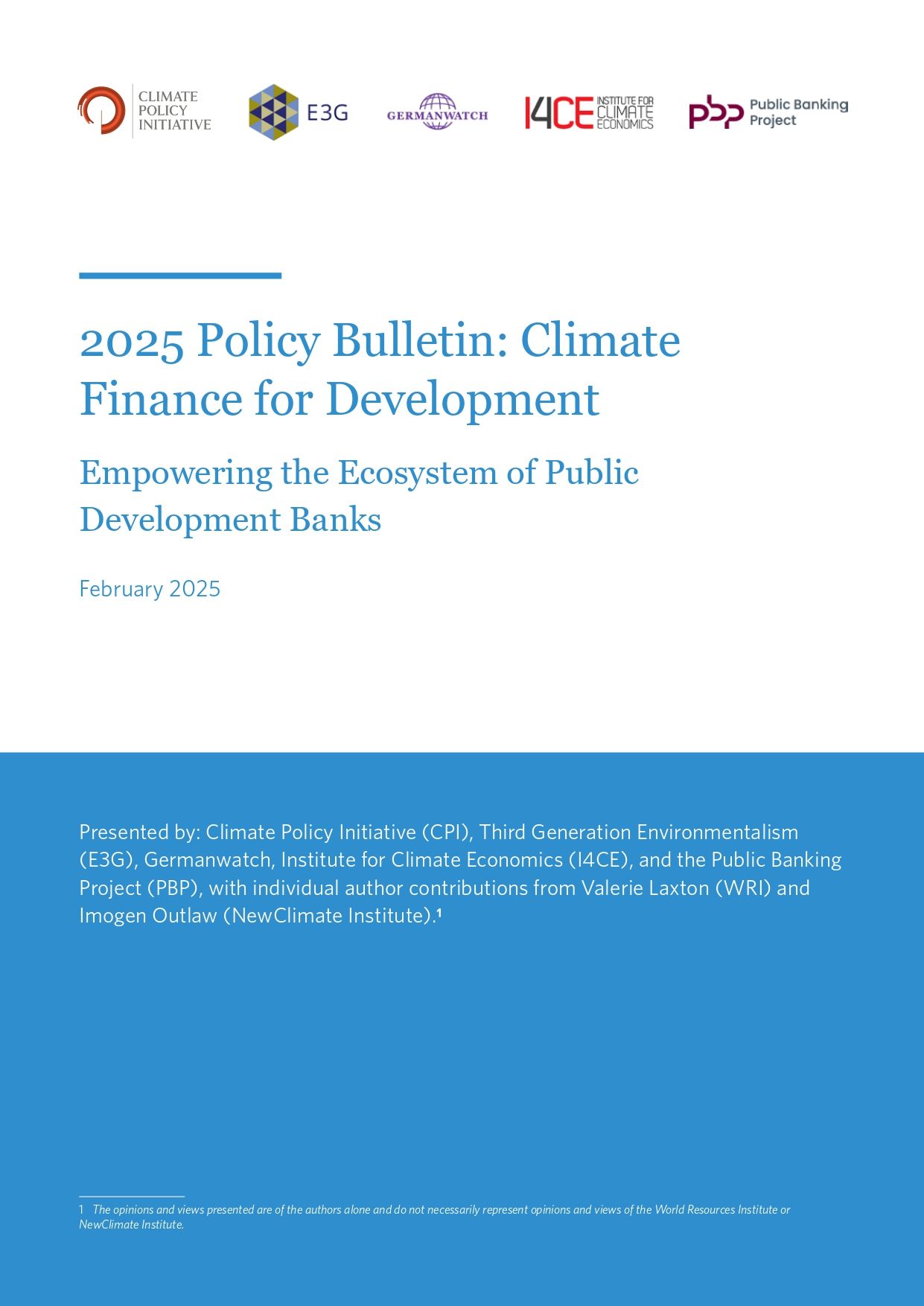Climate Finance for Development: Empowering the Ecosystem of Public Development Banks
Presented by: Climate Policy Initiative (CPI), Third Generation Environmentalism (E3G), Germanwatch, Institute for Climate Economics (I4CE), and the Public Banking Project (PBP), with individual author contributions from Valerie Laxton (WRI) and Imogen Outlaw (NewClimate Institute).
2025 is a pivotal year for the interlocking global agendas of climate and sustainable development, highlighted by major convenings such as the 5th Finance in Common Summit (FiCS), the 4th International Conference on Financing for Development (FfD4), the G20 Summit under South Africa’s presidency, and the UNFCCC COP30. Public development banks (PDBs) will feature prominently across these events, given their integral role in implementing these critical agendas through financial support and stakeholder mobilization.
This policy bulletin summarizes recent research on how PDBs’ contribution to low-emissions and climate-resilient development can be accelerated and scaled to make progress towards the global agenda for sustainable development. Bolstering domestic markets and sourcing local finance is key to addressing the availability and the delivered cost of capital, as well as to reaching decarbonization, adaptation, and sustainability goals. To transition to just, net zero, and climate-resilient economies, a bottom-up approach will significantly accelerate change and effectiveness. Countries and domestic institutions need to be involved at the onset of reforms, to ensure ownership and alignment.
In particular, the bulletin synthesizes key findings across publications from our respective organizations to provide PDBs, shareholder governments, and other relevant stakeholders with actionable recommendations across the following topics:
- Operationalizing Paris Alignment and Impact Measurement
- “Public-Public” Collaborations for Climate Finance
- Mobilizing Private Finance to Meet Climate Investment Gaps
- Building Platforms for Just Transition and Sustainable Development
- Financing the Energy Transition
- Other Emerging Themes (e.g., nature finance, carbon markets, digital technology)
On an ongoing basis, this document will be updated as a reference point for evidence-based discussions on each of these topics, bringing together practitioners, policymakers, investors, and the broader research community to coordinate activities and develop solutions around common understanding and objectives.


